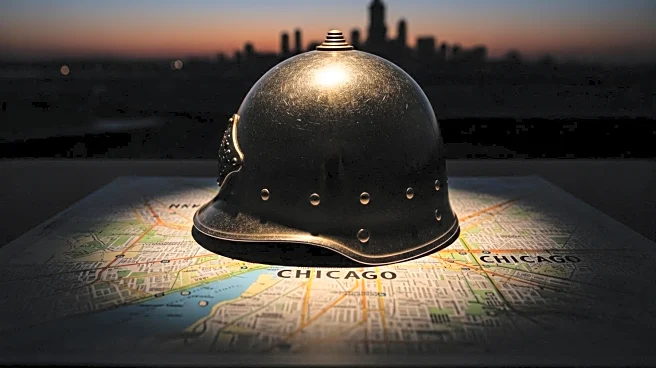What's Happening?
President Trump has announced his intention to deploy the National Guard to Chicago, a move that has sparked debate among local leaders. Mayor Brandon Johnson and Governor JB Pritzker have expressed concerns over federal intervention, viewing it as an overreach. The proposal comes amidst persistent violence in Chicago's most distressed neighborhoods, such as Austin, Englewood, and Garfield Park, which continue to experience high levels of crime despite overall citywide declines. The initiative aims to address deep-rooted issues contributing to violence, including poverty, inadequate housing, unemployment, and systemic racism. Tio Hardiman, founder of Violence Interrupters Inc., urges collaboration between federal and local governments to develop comprehensive solutions that tackle these systemic problems.
Why It's Important?
The proposed deployment of the National Guard in Chicago highlights the ongoing struggle to address urban violence and systemic inequality. While crime rates have decreased in some areas, neighborhoods like Austin and Englewood remain disproportionately affected. The intervention could bring additional resources to these areas, potentially reducing violence and improving community safety. However, it also raises concerns about federal overreach and the historical tensions associated with National Guard deployments during civil unrest. The collaboration between President Trump, Mayor Johnson, and Governor Pritzker could set a precedent for bipartisan efforts to address urban violence and systemic issues, impacting public policy and community relations.
What's Next?
The next steps involve potential discussions between federal and local leaders to find common ground and develop strategies that address the root causes of violence in Chicago. The effectiveness of the National Guard deployment will depend on the ability of these leaders to collaborate and implement long-term solutions. Community engagement and input will be crucial in shaping these strategies, ensuring they are tailored to the specific needs of affected neighborhoods. The situation remains fluid, with ongoing debates about the role of federal intervention in local governance and its impact on community trust.
Beyond the Headlines
The deployment of the National Guard in Chicago could have deeper implications for federal-state relations and the approach to urban violence in the U.S. Historically, such deployments have been met with mixed reactions, often exacerbating tensions between communities and authorities. This initiative could prompt a reevaluation of how systemic issues like poverty and racism are addressed at both local and national levels. It may also influence future policies on federal intervention in local matters, setting a precedent for how similar situations are handled across the country.









